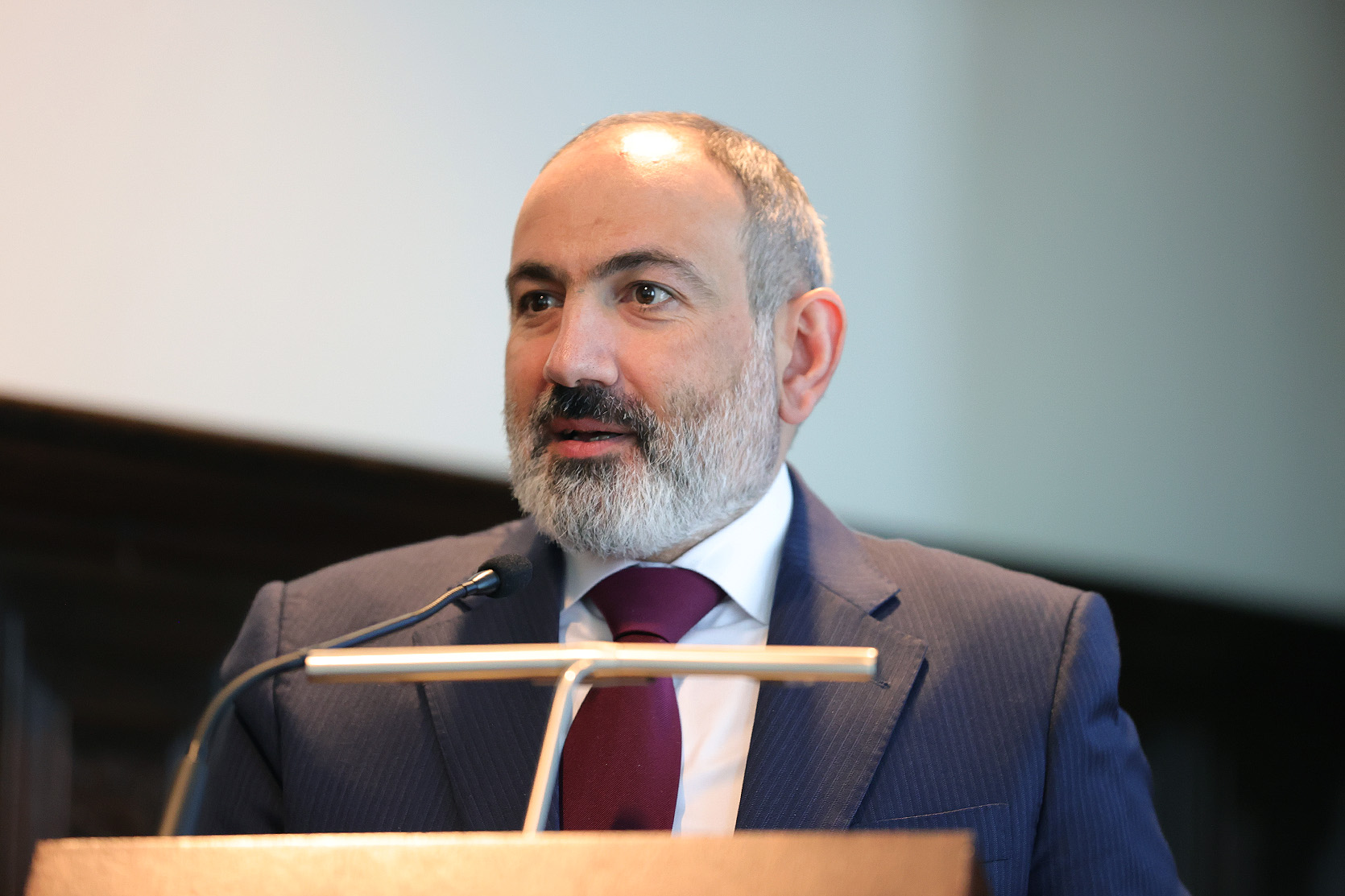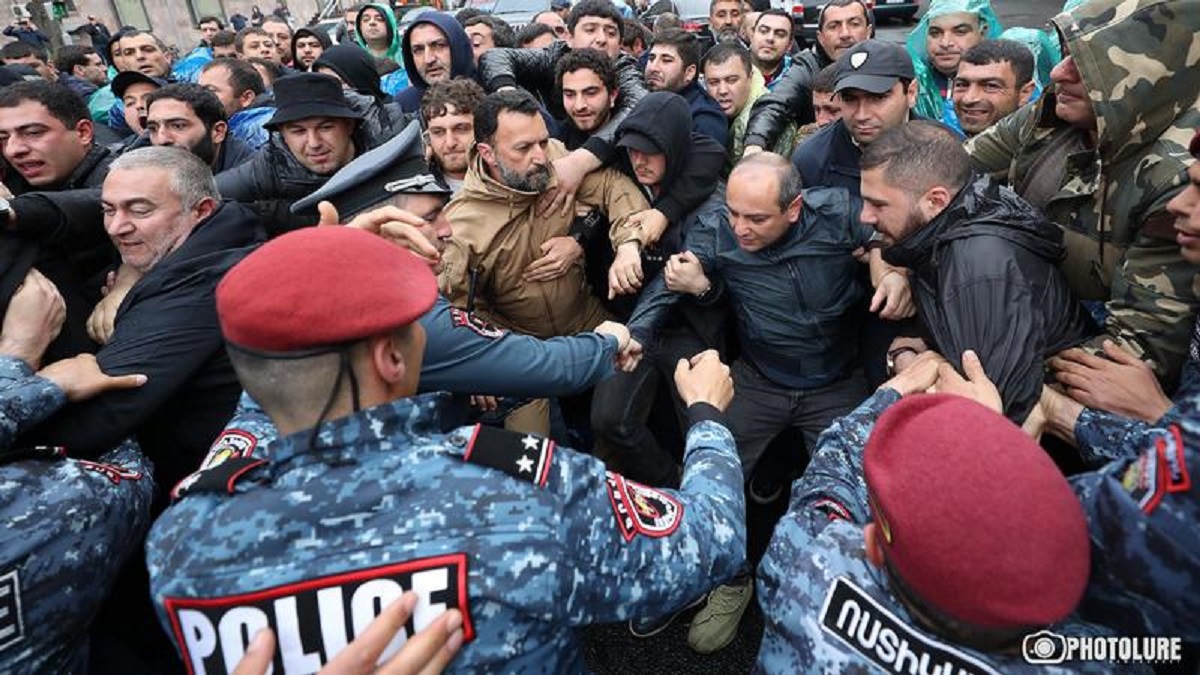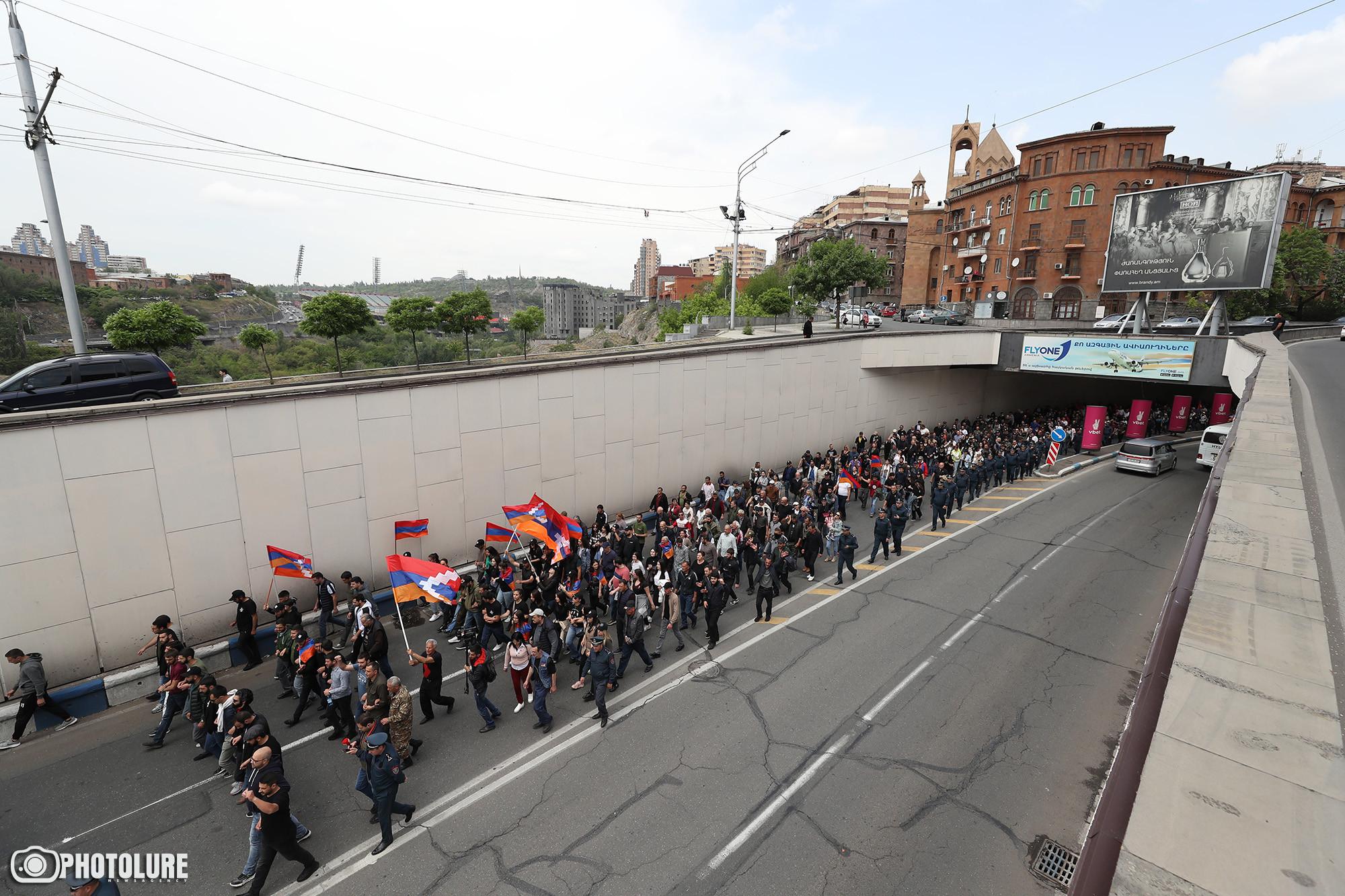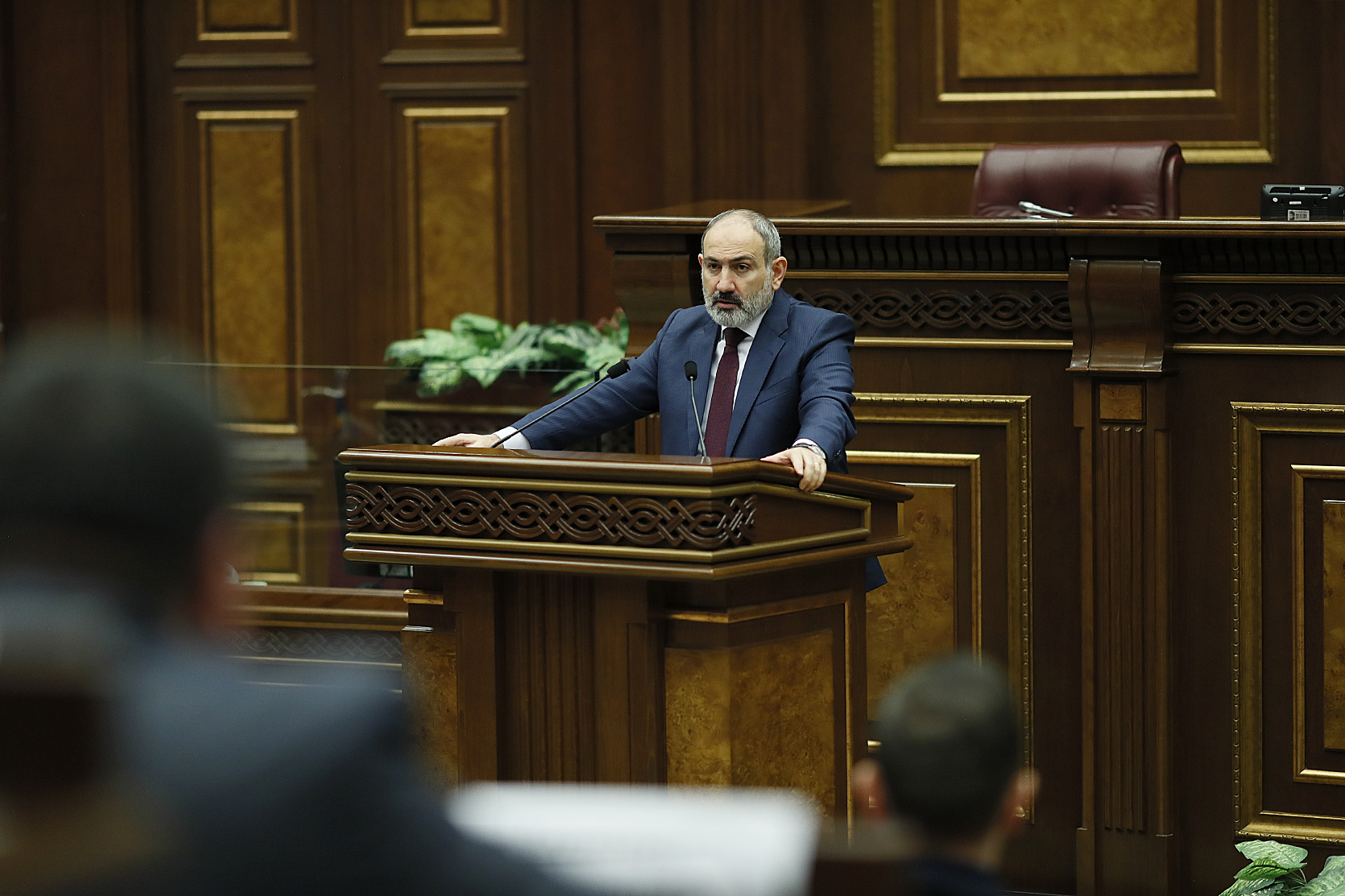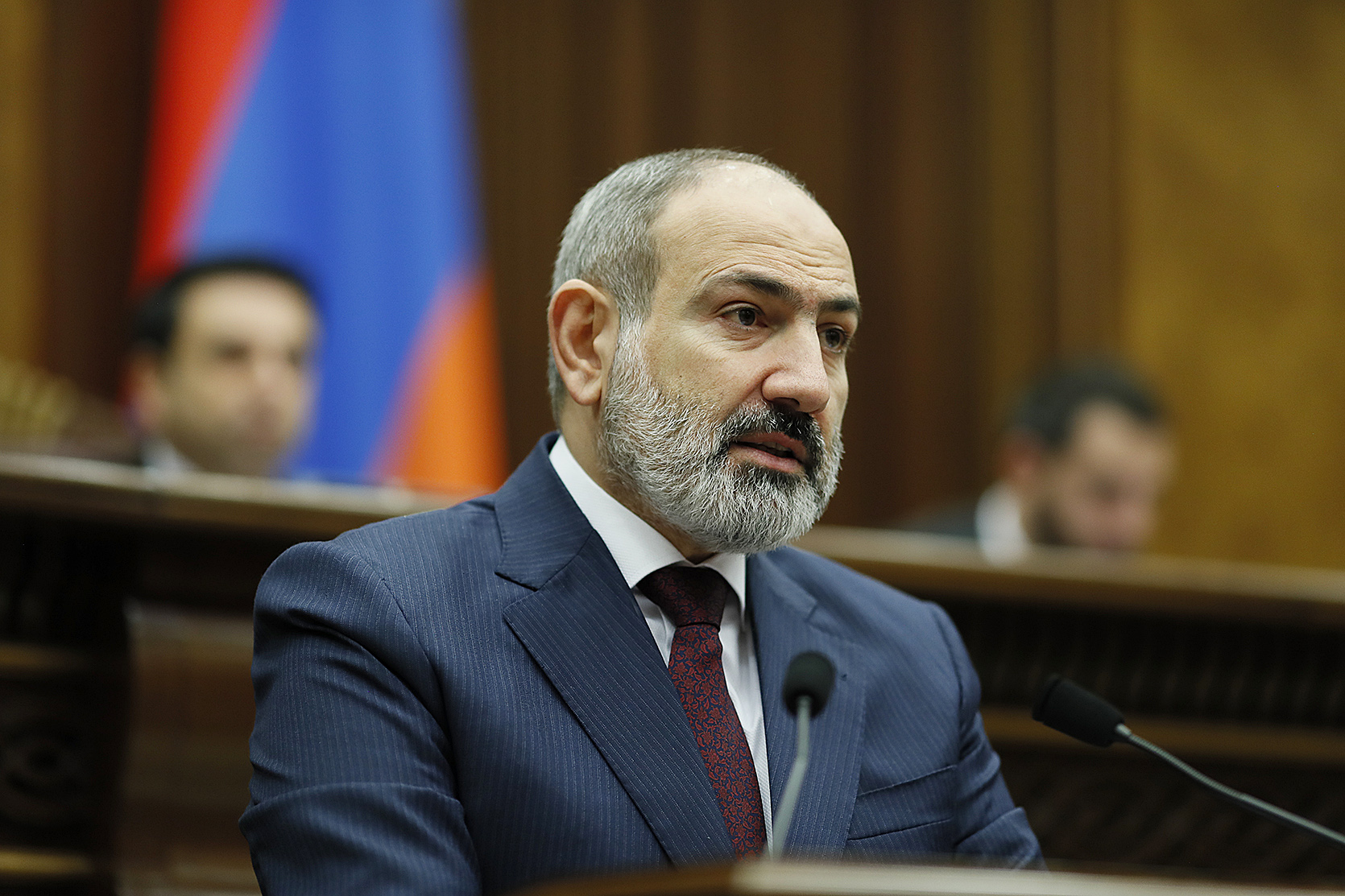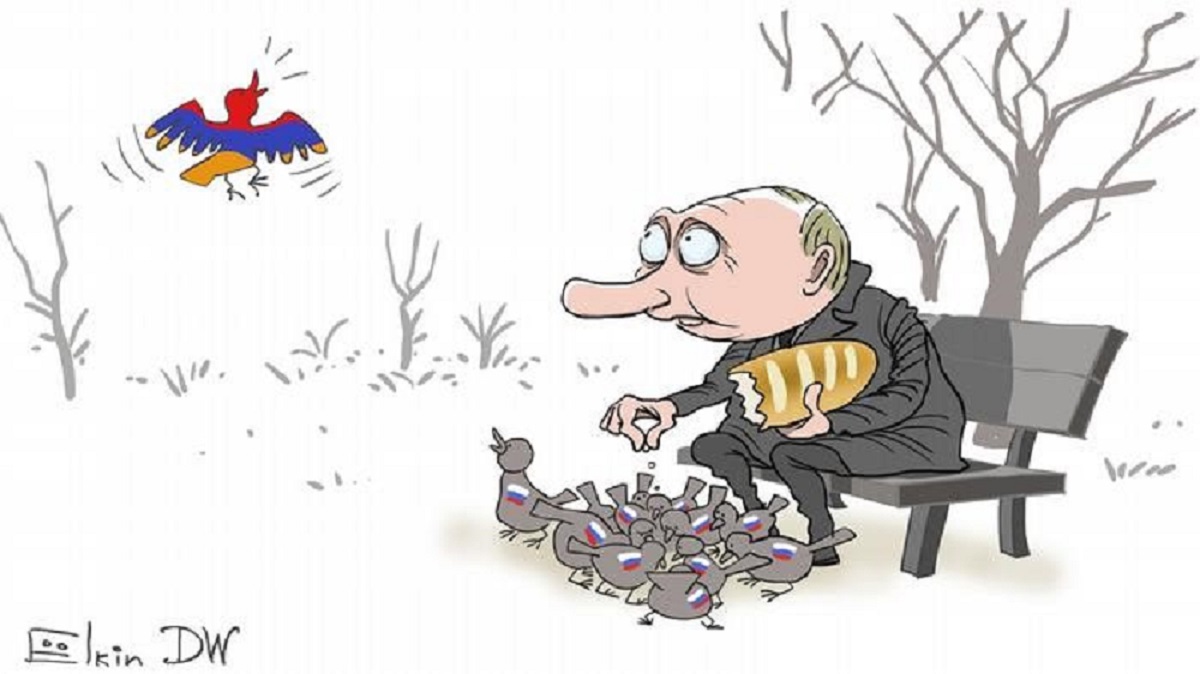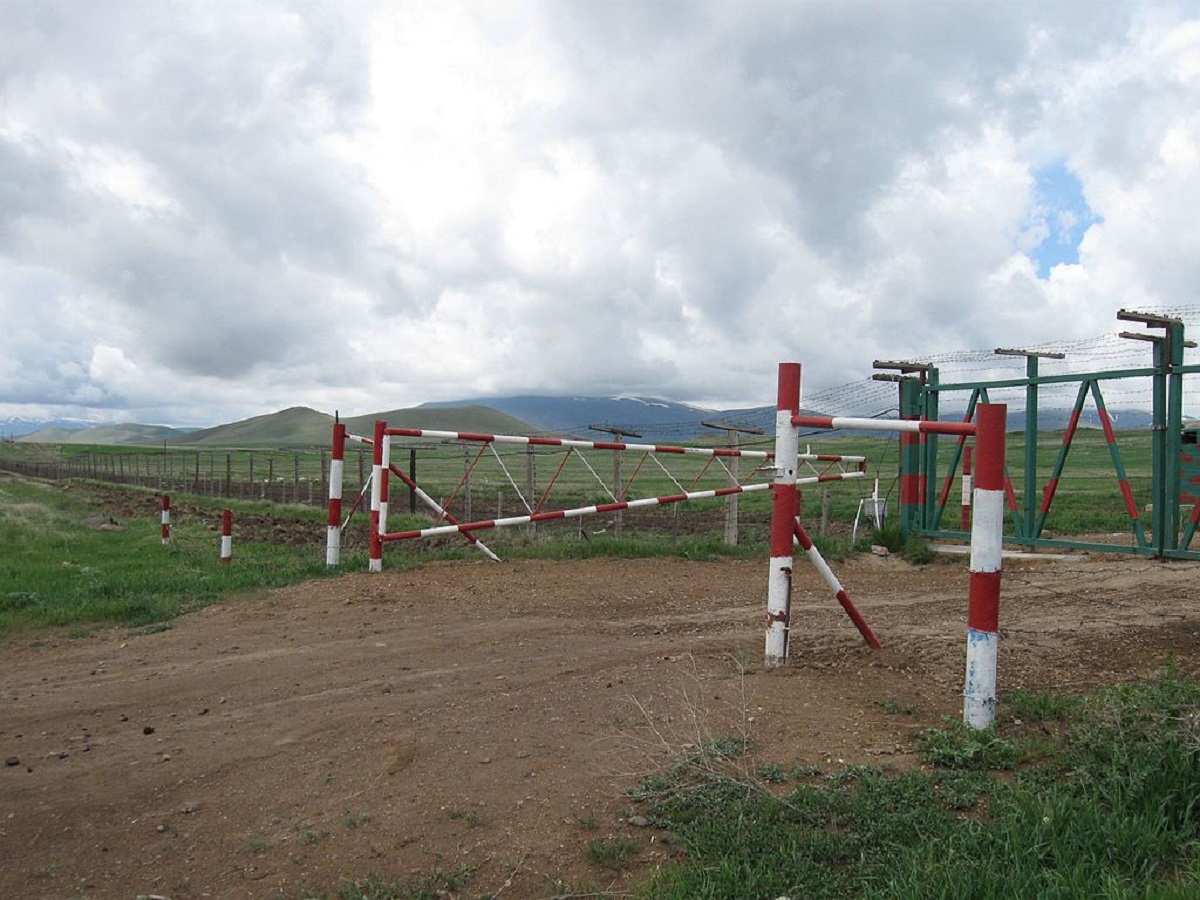“Building a state is not an easy task”: an opinion on the internal political situation in Armenia
Domestic political situation in Armenia
The political landscape in Armenia is becoming more acute and dangerous every day. According to analyst Alexander Iskandaryan, only an adequate political system can meet the challenge. There are calls for the consolidation of political forces, improved security, and flexible diplomacy in order to survive.
An opinion on how adequately Armenia reacts to political processes around it, internal politics in the country, the polarization of relations between the authorities and opposition, and the likelihood of political consolidation.
- Corridor of discontent: the new road between Armenia and Nagorno-Karabakh
- Armenia to complete construction of alternative to Lachin corridor in May 2023
- Peacekeepers or border guards? Russian checkpoints on the roads of Armenia
Political scientist and director of the Caucasus Institute Alexander Iskandaryan
New political generation without ideology
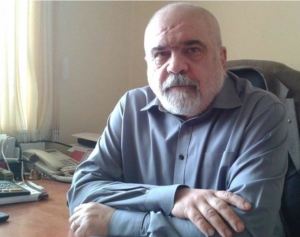
“What is happening now is a return to the situation before 2018. The style has changed, the people and the political generation have changed. But this is not enough to change the political culture and structure. And the current situation confirms this.
“Now, instead of the Republican Party of Armenia, led by former President Serzh Sargsyan, the Civil Contract party, led by Prime Minister Nikol Pashinyan, is in power. That is, after the “velvet revolution” of 2018, one party replaced another and occupies two-thirds of parliament. So the constitution says.
“The new ruling party is about personality, it does not rely on ideology – due to its absence, it only has slogans. The “Civil Contract” is made up of people who owe their leader the fact that they got into parliament.
“If Pashinyan had proposed an entirely different list, the result would have been approximately the same.
“The voters did not vote for these people, but for the political force that its leader, Nikol Pashinyan, personifies.”
Opposition without influence
“It was the same with the Republicans. They didn’t have a pronounced ideology either; there was no program, people had nothing to vote for.
“Armenia has a hybrid opposition system. It sits in parliament and has the right and opportunity to speak, has access to the media, has publications that support it. But it has no chance of influencing decision-making.
“The ruling party does not need the opposition at all. It can do without it when making decisions, they can be totally neglected.
“As a result, the opposition is exercising its right to speak and criticize, sometimes radically, in the same way that Pashinyan and his Yelk faction criticized the authorities until 2018. This leads to the displacement of political protests, all kinds of actions outside the parliament, to street activity.”
Protests out of place, protests for show
“This is not a coincidence. And not because they are so bad or badly organized. This is a structural thing, it’s how our political system is arranged.
“The opposition, which cannot influence parliament and isn’t popular in society, acts as it will. So it was before 2018, so it is now.
“They only work negatively, that is, the opposition criticizes the government. And its criticisms are petty or irrelevant. The main thing is that the opposition has no positive program. Nor does the ruling party. None of them offers an alternative.
“So the opposition criticizes the authorities, the authorities criticize the opposition, doing historical research, citing some evidence of the guilt of this or that person in Armenian history until 2018.
“This is a consequence of the political structure, and it is impossible to change it simply by changing people or even changing the law.
“When opponents only have a negative program, against each other, then politics is replaced by trolling. “You are bad. No, you are bad.” And this cannot lead to mass support in society.”
Power for power
“The ordinary person in the street is rather apathetic. Power is based not on support, but on apathy. So it was with the Republicans. Their approval rate was quite low, in the end between 10-20%. But people did not see any prospects, and decided if there is no hope, then I will go and vote for the same.
“From 1992 to 2018, the government had very low approval, and then the rather high approval of the revolutionary Pashinyan changed the situation. He rode to power on that. First the executive, then the legislature, removing the Republicans, then the judiciary, local, etc.
“This resource (public approval) was used by the current government only to achieve power. Power for power.
“Accordingly, the situation went in the opposite direction. The popularity of power is falling, and power is beginning to rely not on public, social resources, but on bureaucracy. And this is a restoration of the previous situation.”
Armenia has failed an adequacy test
“Nevertheless, changes in the political culture are taking place. Maybe not so quickly, but they do happen. For example, Armenia today is not the same as it was in 1995. Change occurred throughout all these years, and not just in 2018.
“Processes were going on both around Armenia and within the country. And these processes were very significant. But Armenia didn’t live up to these challenges.
“For example, in domestic politics. Constitutional changes and the attempt to preserve the rule of Serzh Sargsyan were an obvious mistake of the Republicans.
[A referendum to amend the constitution was held in 2015. The proposed amendments changed the system of government in the country from semi-presidential to parliamentary. Experts announced that this was an opportunity for President Serzh Sargsyan, who was approaching the term limit of two, to stay in power. The country’s transition to a parliamentary form of government allowed him to be elected to the post of prime minister and retain the status of head of state.
The process of transition to a new form of government took place during the 2017-2018 election cycle. In the spring of 2018, a majority of the population supported the oppositionists, led by Nikol Pashinyan, who demanded the departure of Serzh Sargsyan.]
“This was one of the reasons for the revolution, if not the main one. If Serzh Sargsyan had not tried to stay in power, the revolution would not have happened just then.
“Those omissions in internal management, including in the field of security, did not begin in 2018. At least after the April war in 2016, and maybe even earlier. But Armenia reacted inadequately to all the challenges.
“Now the situation is much more difficult and acute, and the challenges are much more difficult. This is the result both of the 2020 Karabakh war and the war in Ukraine.
“There is a completely different situation in the world. Armenia was in a situation where there was no such direct and ardent confrontation between Russia and the West, and we had some kind of room to maneuver. It no longer exists.”
A need to improve in all areas
“We need greater organization, a clear understanding of what we want, how and in what direction we are moving.
“We need to work on all areas, from security to diplomacy. And all this needs to be improved in a more acute situation, with war in Ukraine and a weakening of Armenia itself.
“All this without an appropriate political system is impossible to do. We need to build this system, and we all must build, not just politicians.
“Our current system does not respond well to existing challenges. In order to respond appropriately, we need:
- a normal opposition,
- political parties that develop programs and not just troll their opponents,
- authorities that do not attempt to trample all that came before into oblivion
- a different kind of discourse.
“Given all this, there will be better decision-making and a change in the feeling of the country. This, unfortunately, is not happening today, despite the critical nature of the situation.”
Is consolidation possible?
“It is extremely difficult today to imagine all forces sitting at the same table.
“In world practice, this is called a government of national salvation, when different forces unite and try to find some way to develop the country.
“In the current situation, when our political forces are rejecting each other, there is total distrust between them, their relations are more than radical.
“Both the opposition and the authorities say that the opposite side should not exist at all, it should not take part in politics. For them, the main goal is to eliminate the other side from politics.”
Change through fatigue
“We need to build a system so that the right people are in the right places. But for this, there has to be the will in society. In order to change the system, Armenians must become tired of the status quo.
“When total fatigue sets in and understanding appears in society, then some people, structures, parties, ideas may appear that can lead to change.
“This happened in 1988-1991, in 1996-98, in 2007-08. And so it was in 2018, when the “velvet revolution” took place. By the way, these were all cycles of ten years. This time it might take longer.
“Right now I don’t see anything that could bring about this kind of change in the short term. Building a state is not an easy task.
Domestic political situation in Armenia











